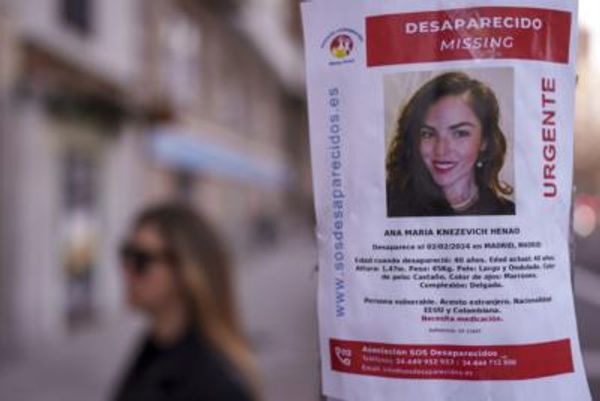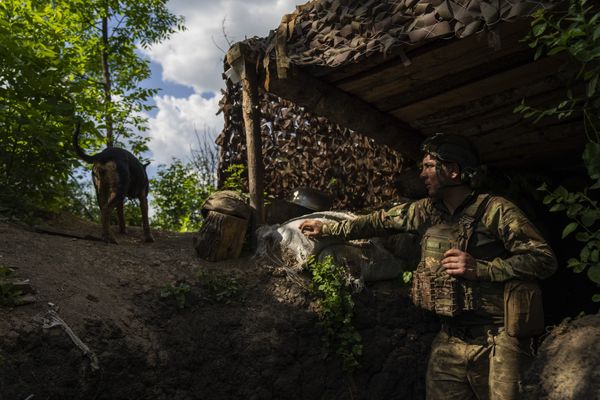Dr Deborah Simmons was helping prepare staff at a central Queensland hospital for COVID-19 when she got an emergency call about an explosion at a nearby coal mine.
It was May 6, 2020.
"I had spent two weeks going around all of our peripheral hospitals doing teaching for COVID-19," Dr Simmons said.
"I had just finished at Moranbah Hospital and was about to leave when the nurse unit manager rang me and said there had been a mine blast."
Five workers at the Grosvenor coal mine had been seriously injured in a methane explosion in the underground mine.
The experienced anaesthetist and senior medical officer from the Proserpine Hospital rushed back to Moranbah Hospital where staff had about 15 minutes to prepare for the injured men.
"We knew there were five patients coming in and a lot of them had airway burn injuries, which is obviously a very frightening experience for anybody, never mind an anaesthetist … because we know that if we lose the airway, we've lost the patient," she said.
"It was something that I was quite worried about, as I didn't know the staff, I didn't know what equipment they had … but everyone just worked together as a fabulous team. The staff were amazing.
"At the time it was a job that we just had to get through, and we did.
It was no miracle the five men survived the blast.
They survived because of the work of the paramedics, the doctors and nurses at Moranbah Hospital, including Dr Simmons, air transport crews and the Royal Brisbane Hospital burns unit.
"We had a meeting a week later, a debrief, where the burn surgeon said when they first heard about the blast, they expected to get maybe two, maybe three back alive," Dr Simmons said.
"They were absolutely thrilled that they got five and all of that is really on the teamwork at that hospital in Moranbah."
Impacts of the job
Dr Simmons was left with post-traumatic stress disorder from the Grosvenor incident.
"I have dealt with many, many emergencies and as an anaesthetist you get many traumas that come in," she said.
"Working in Moranbah during the incident was very different for me because I was working in a place I didn't know, with staff I didn't know.
She said if any frontline workers had symptoms, they should seek help.
"Get a diagnosis and get treated very quickly," she said.
"The sooner you get treatment, the more likely you are to get back to work.
"I'm almost back to what I was doing before Moranbah happened. I'm only a couple of on-call shifts away."
Honoured for work
Dr Simmons was this week awarded an Order of Australia Medal for her service to medicine.
"I'm very humbled because I'm one of many doctors that work in rural communities," she said.
She was a senior consultant anaesthetist at the Flinders Medical Centre, before becoming a locum anaesthetist, and now a rural generalist at Proserpine.
"As an anaesthetist you say hello and goodbye to a patient, where as working as a rural generalist, I've worked with GPs that have delivered babies… you see the same faces when they come into the hospital, you get to do some palliative care.
On February 16, 2016 a public transport bus rolled on Shute Harbour Road between Cannonvale and Proserpine.
Whitsunday teenager Casey Stinson-Brown was killed in the crash and 10 others on the bus needed hospital treatment.
One passenger suffered a traumatic amputation of a hand, while another suffered a major degloving of a forearm.
"We had patients who were meant to come in that day for clinics that realised that they probably shouldn't and they stayed home," Dr Simmons said.
"We had doctors that were on their days off and nursing staff on days off, and operational staff, that came into the hospital to help.
"It was just the whole community getting together, which is just very, very, different to what I ever did in anaesthetics."
Dr Simmons said she hoped her story would encourage other doctors to give rural generalism a go.
"After 10 years of being in this system, the liver transplants, the high-risk obstetrics, bariatric surgery, which you would think would be very fulfilling, and yes they are.
"[But] to be able to work in a rural community which is not just about your operations, but more about the people, the people you work with, the people you live with, the people you treat, it's just amazing."
Mental health in your inbox
Get a selection of the best mental health content from across the ABC by subscribing to our monthly newsletter







